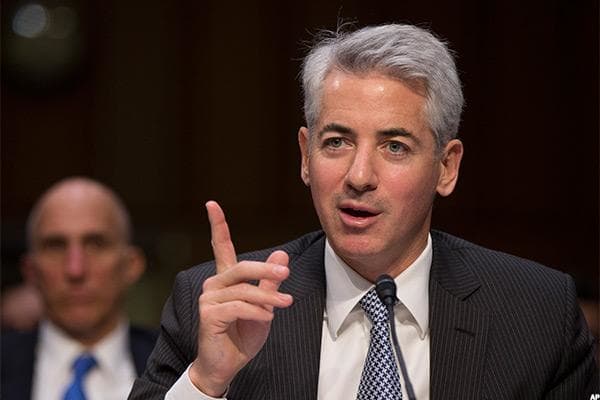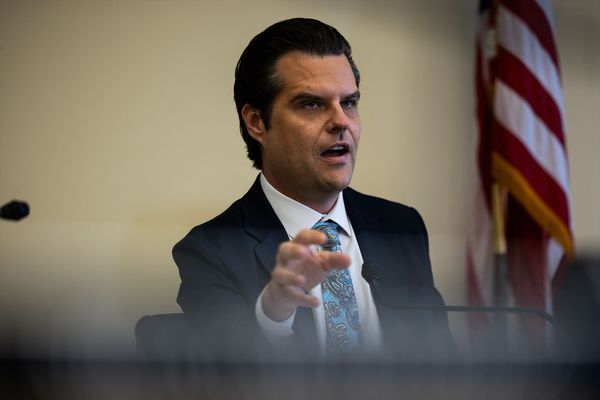
His voice and his influence are enormous.
Financier Bill Ackman is one of Wall Street's most well-known and respected financiers. And snce the beginning of the new banking crisis, his voice has never been louder.
Ackman, along with tech investor David Sacks and tech billionaire Mark Cuban, has been pressuring regulators to save Silicon Valley Bank, which had failed after a bank run.
The CEO of the Pershing Square hedge fund urged the regulators to act as swiftly as possible, to avoid a panic in the markets and significant damage to the global financial system. For him, inaction would be devastating.
Presumably, Ackman and other influential voices on Wall Street and in Silicon Valley had been heard. The Treasury Department, the Federal Reserve and the Federal Deposit Insurance Corp. announced extraordinary measures on March 12.
The FDIC guaranteed all of SVB's deposits, even those above $250,000, removing the regulatory limit.
Big Banks Show Up With a Rescue
The Fed also created a new loan facility called the Bank Term Funding Program, designed to safeguard institutions affected by the collapse of SVB.
The facility provides loans of up to one year in length to banks, savings associations, credit unions, and other eligible depository institutions that pledge U.S. Treasury securities, agency debt, mortgage-backed securities and other qualifying assets as collateral.
These assets will be accepted as collateral at par value, which means at their original value, regardless of the rise in interest rates in recent months. Those higher rates have reduced the value of long-term bonds that were purchased when rates were low. The Fed wants to avoid institutions being forced to sell their bonds for big losses.
While these measures have averted a slump in the markets, they have not allayed the fears of contagion, with the distrust focused on the U.S. regional banks and international banks. First Republic Bank (FRC) in the U.S. and Credit Suisse (CS) in Europe are in the crosshairs.
In Europe, the Swiss National Bank, the country's central bank, granted an emergency loan of nearly $54 billion to Credit Suisse to shore up its liquidity. In the U.S., regulators encouraged a coalition of banks to rescue First Republic Bank.
The San Francisco bank received $30 billion in deposits from 11 banks on March 16. The major banks -- Bank of America, JPMorgan Chase, Wells Fargo and Citigroup -- participated in the rescue plan, each contributing $5 billion. Goldman Sachs and Morgan Stanley each contributed $2.5 billion.
"This show of support by a group of large banks is most welcome, and demonstrates the resilience of the banking system," the Treasury Department said in a statement.
'Half Measures Don't Work': Ackman
The question is whether this announcement will help stabilize First Republic Bank, shares of which have fallen 70% since the setbacks of SVB. Few details about the surprise plan have filtered out, which is likely to raise more questions.
"@SecYellen has apparently pushed the SIBs to recycle some of the deposits they received from @firstrepublic back into FRB for 120 days," Ackman said about the rescue plan in a long tweet. "The result is that FRB default risk is now being spread to our largest banks."
The financier is referring to Treasury Secretary Janet Yellen. "SIBs" refers to systemically important banks, or banks whose failure can cause significant damage to the financial system and the wider economy.
"Spreading the risk of financial contagion to achieve a false sense of confidence in FRB is bad policy," Ackman wrote. "The SIBs would never have made this low return investment in deposits unless they were pressured to do so and without assurances that FRB deposits would be backstopped if it failed."
Ackman is furious with regulators. He denounces the rescue plan as a half-measure and warns that the clock is ticking if the federal government wants to avoid a big crisis.
"The press release announcing the $30B of deposits raised more questions than it answers. Lack of transparency causes market participants to assume the worst," the financier said. "I have said before that hours matter. We have allowed days to go by. Half measures don’t work when there is a crisis of confidence."
Guarantee All Deposits?
He continued:
"Again, I have no investments long or short in the banking sector. I am simply extremely concerned about financial contagion risk spiraling out of control and causing severe economic damage and hardship.”
"We need to stop this now. We are beyond the point where the private sector can solve the problem and are in the hands of our government and regulators. Tick-tock."
First Republic Bank shares, which rebounded 10% after the announcement, fell again in recent trading.
For Ackman, the current problem is a crisis of confidence in the banking sector and "half measures" won't solve it. To emphasize his point, he noted that First Republic Bank is a well-run bank with healthy assets. He thus proposes that the FDIC announce that it will insure all deposits in American banks.
"We need a temporary systemwide deposit guarantee immediately until expanded and modernized @FDICgov insurance system is made widely available," the financier suggested.
Get exclusive access to portfolio managers and their proven investing strategies with Real Money Pro. Get started now.







